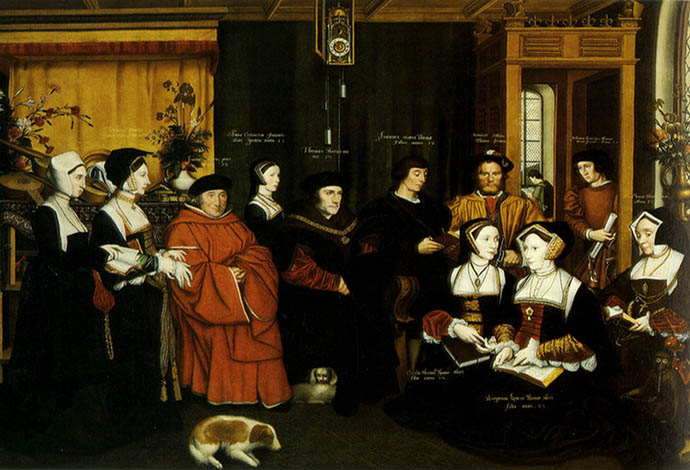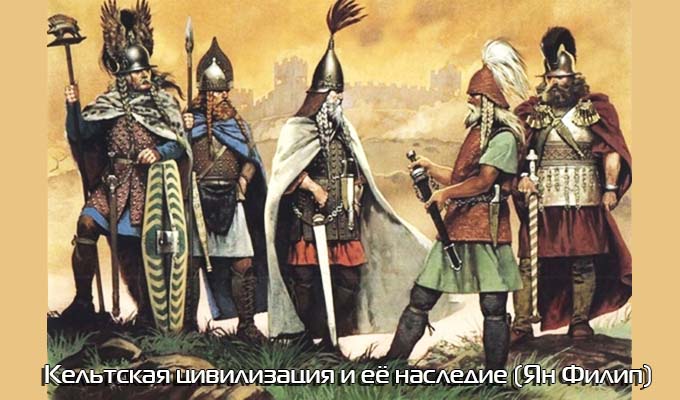
In 1534 two in anything not similar at each other the person took a decisive step which led to reckoning them later Catholic church to the Community of Saints. In London the former Lord Chancellor Thomas Mor, the author of ingenious “Utopia”, refused to swear to a new order of a succession to the throne which was provided by the parliamentary act of March 30 of the same year which legalized the Reformation. It is known that family affairs of “the defender of belief” as Henry VIII who before was personally engaged in a denial of heresy of Luther called himself were the formal cause of the Reformation in England. (In reply Luther called the king by “an asinine head” and “the brainless clown”.) “We cannot” — these words borrowed from “Acts of Saint apostles”, the father Kliment VII answered Henry VIII’s request for divorce with Catherine of Aragon. (The king needed divorce to marry the court beauty Anna Boleyn.) Adherence to principles of the Roman throne was caused not by religious, but especially terrestrial, political reasons. “We cannot” meant that the Roman high priest could not go counter to Catherine’s nephew — the Spanish king and the German emperor Charles V — possession of which in Italy surrounded the papal state from all directions. But even less smiled to Henry VIII to depend on the father who depended on the emperor. “We have to thank Merciful God who can force and such devil with his demons to inure to benefit of our pleasure and all Christians!” — Luther exclaimed, having learned about Henry VIII’s break-up with Rome. The parliamentary act which Mor did not wish to recognize put an end to submission of the English church of the power of the father and declared illegal marriage of the king with Catherine of Aragon and the daughter from this marriage Maria — deprived of the right for inheritance of a throne which had to pass to children of Heinrich and his second spouse — Anna Boleyn. Attempts to force Mora, holding big moral authority, to change the position were vain though he perfectly knew that he for the inflexibility will pay with life. On the basis of obviously false indications Mor was sentenced to death and with exclusive courage met death. In 1534 when Mor pined in prison on a charge of commitment to Catholicism and hostility to the Reformation, in Paris the former Spanish soldier studying at theological faculty together with several supporters made the decision on creation of the Award of Jesuits which became assault group in fight against Protestantism. Will seem to the reader, of course, inadmissible comparison of two names — the great humanist, for centuries who outstripped the time and the gloomy fanatic Loyola who swore an oath by all means to try to obtain eradications of heresy (though they as two Saints, quite suitable figures for comparison from the point of view of the latest Catholic historiography). Let speculation of papacy on a name Mor be obvious — but, at least, to all appearances he accepted martyrdom for the sake of Catholicism. Whether so it was actually? Really the ingenious thinker — where he could not break inevitable historical limitation of the time — really considered a question of legality or illegality of second marriage of the loveful tyrant such basic that offered life? Really he considered the power of the Pope over the English church as the highest blessing, despite abuses perfectly known to it which were connected with it and which were exposed by supporters of the Reformation in all European countries? Serious researchers, of course, do not accept the version of clerical historians, but could not come to a consensus about the valid motives by which Mor was guided. Sometimes it is represented the martyr for good reason by tolerations. But Mor was not consecutive in the views of this problem. In the “Utopia” written in 1516 prior to the beginning of the Reformation, he supports full freedom of religion and expression of various opinions if it is not followed by attempt to force them down the throat. In the practice on a post of the Lord Chancellor Mor evaded from prosecution of heretics. However in “Dialogue about heresy” (1528) he represents heresy criminal and traitorous, and in other compositions even approves use of force against heretics. He believed that people’s movements under the Reformation banner, like Peasant war in Germany, can do only harm. In papacy of Mor restriction of royal despotism seemed. Perhaps, to a look Mora those disasters which were brought down by royal reformation on the people appeared? Confiscation of abbey-steads led to a mass drive off new landlords of tenants from their places to clear the territory for maintaining favorable sheep-breeding economy. Possibly, in such assumption there is a grain of truth, but Mor noted already earlier that “sheep began to devour people”, and hardly he could expect social and economic consequences of the Reformation with all clarity. They were besides not identical in the different countries, the Reformation got various social sense there. England was not predetermined to go in advance at all on that way on which its subsequent development went. But Mor quite distinctly realized to what already the Reformation — in the early thirties led to split of the western Christianity (with an obvious tendency of its further disintegration on the conflicting sects) and to military confrontation between the formed two camps in the conditions of the amplifying impact of the Ottoman empire. Whether the position Mora was dictated first of all by opinion that the Reformation is inevitably connected with incitement of the century conflict which so feared and for which prevention long ago his friend Erasmus Roterodamus vainly made efforts? Erasmus, having learned about execution Tomasa Mora, wrote about the dead that “his soul was more white than snow, and the genius such is that England nevermore to have similar though it will be the homeland of great people”. It seemed to Erasmus that Mor arrived carelessly, in vain drew upon itself royal anger. “If it never allowed to involve itself(himself) in this bad job and would leave theological questions to theologians!” — with bitterness Erasmus exclaimed. Meanwhile he was an adherent Mora though did not resemble it character at all. And, Erasmus did not manage to leave the main thing “theological questions to theologians”. Through Erasmus’s compositions war condemnation stands out. Whether “War — a nursery and a source of all deserving acts? And between what can be sillier, than enter for any reasons competition during which each of the parties surely feels much more discomfort, than gets benefits? And generally the war so glorified by all is conducted by the freeloaders, procurers, thieves, murderers, stupid yokels who did not pay off with debtors and to that similar geeks of society, but not educated by philosophers at all”. “The complaint of the World from everywhere expelled and everywhere broken” (1517) — the most known anti-war work of Erasmus. The main character of this recitation — the World mourning the disasters and which is distressed concerning madness of people. Peacefulness — the law of the universe consecrated by Christianity. War contradicts the essence of Christian dogma, all to it, to the smallest details. The reasons of wars which are waged in Europe are insignificant and do not deserve any respect, they are quite often reduced to envy in relation to the prospering neighboring country. Wars are unleashed by those who should be keepers of the world — monarchs, noblemen, the highest clergy. Tyrants by means of war criminal try to strengthen the power over the people, without caring for its wellbeing at all. Disasters of war fall on the people, and on justice they would have to fall upon sovereigns. In other works Erasmus sharply criticizes dynastic wars. He rejects the dynastic rights and claims which are their cornerstone. The right of possession arises from a consent of the people, and it can not give this consent. During dynastic wars it is not about replacement of the tyrant with the lawful sovereign, and about the one to whom the people have to pay taxes. In a number of the works setting the propaganda purposes, Erasmus issues an unconditional condemnation of any wars. He emphasizes incompatibility of war and Christianity, he even rejects Blessed Augustine’s opinion on correctness of wars in certain cases, including this opinion contradicting the evangelical doctrine. However it is impossible to recognize thorough attempts of a number of researchers to carry Erasmus in camp of pacifists: where not there was a speech about promotion of idea of the world, Erasmus inclined to recognition of correctness of fair wars. It referred defensive wars against Turks to their number. Paraphrasing the quote from Luka’s Gospel, Erasmus wrote that it is impossible to condemn completely the war which is conducted for protection of general tranquility in conditions when it cannot be defended in other ways. Such war has to be waged by the worthy, pious monarch with the consent of those for the sake of whom it is undertaken. Erasmus emphasizes that such war should be waged with moderation, that is, whenever possible limiting number of the victims and material losses and to seek for its fastest termination. However, to make unnecessary and such wars, Erasmus offered legislative prohibition of war, the announcement become invalid for all rights which have to lead to a war, the conclusion of the contracts guaranteeing mutual safety, exact definition of frontiers, strict regulation by the law of an order of a succession to the throne. The monarch had to receive the right to declare war only with the consent of the people. Erasmus offered creation of the international arbitration court consisting of the spiritual and secular persons holding general authority. Due to the consideration of functions of the power of the monarch Erasmus analyzes also foreign policy problems of the state [chapter 8 of its “Institutions” (1516) is devoted to this subject ]. All Christian sovereigns are connected by the union of the general Christian belief. On the contrary, among impious and incorrect monarchs even the unions can often lead to wars. If nevertheless the monarch, worthy the dignity, concludes the alliance, it has to proceed from general welfare, otherwise such union becomes plot against the people. Erasmus recommended to Christian monarchs restraint in the relation with the non-Christian states as they or are incapable to observe the obligations, or are located too far that from friendly relations with them it was possible to take any benefit. With neighbors it is necessary to live in friendship, in particular with neighbors who speak the same language, have similar customs and customs. Wisdom of the sovereign is shown in ability to correctly define ability of other people to carry out the duties imposed by the allied relations. In these councils Erasmus departs from criterion of tolerance, usual for it, and Christian love, focusing foreign policy first of all on protection of real state interests that does not exclude in principle refusal of the union with the Christian states, the conclusions of such union with “gentiles”. It is easy to notice as far as Erasmus’s councils are turned to the national states created during his era. Some of them managed even to turn into great powers, but kept in many respects the ideas of foreign policy inherited from times of feudal dissociation. Erasmus to the Reformation supported reform of church. His enemies claimed that Luther just continued what was begun by Erasmus. Erasmus obviously sympathized with criticism Luther of defects of clergy. “Luther’s crime — Erasmus ironically noticed — consists their two offenses. He attacked a crown of the father and a belly of monks”. However Erasmus who was originally approving a position of supporters of the Reformation condemned her as soon as he understood that it involves split of the Western Christian world. In 1526 Erasmus wrote Luther: “Because of your quarrelsome, shameless, rebellious temperament you plunge the whole world into the abyss of pernicious disagreements”. But with not smaller heat Erasmus use of force against Protestants — and for moral reasons and therefore that persecutions even more strengthened split of Europe condemned. In the same, 1526 he offered such compromise: in the cities where the Protestantism amplified, both parties should keep at a distance, and everyone should be provided it to own conscience until time creates opportunities for any agreement. In essence, it was a principle anticipation “whose power, that and belief”, that is divisions of Germany according to a religious sign to which came after several decades of fight (as a result of the Peace of Augsburg, 1555) . Erasmus and his followers among Catholics were considered as party which sought to prevent transformation of fight against the Reformation into the century conflict. Subjectively these attempts quite often took the form of the tone of aspiration painted in humanistic to restoration of the broken unity of the western Christian culture. They found the nutritious soil in desire not to put recently reached unity of the state under threat which arose when dispute between opponents and supporters of the Reformation gained considerable scope and created danger of intervention in it of external forces. However, supporters of religious intolerance motivated with the same reasons quite often the actions — resolute destruction of heresy within the country was considered as them as the only well-tried remedy to prevent that it became object of fight of the conflicting camps — Protestantism and Counter-Reformation, to prevent involvement of the state in the century conflict. In France under the influence of humanists whose patroness was Margaret of Navarre, Francis I’s sister the king within one and a half decades pursued policy of limited religious tolerance. F. Rabelais, stating in “Life of Gargantua and of Pantagruel” (book 1) the program of gains of Pikroshol, in accuracy reproduced aggressive plans of Charles V in Europe and on other continents, up to occupation of Algeria and Tunisia. However in 1535 Francis (the king “with hot blood and a poor brain” as he was defined by A. Frans) abruptly changes a course and issues the decree on destruction of heretics. Persecutions accepted wide scope after the edition on June 1, 1540 of an edict of Fontainebleau; secular judicial administrative agencies — “parliaments” became principal organs, it was entrusted to them to carry out prosecutions. Many thousands of people fell the victims of judicial and non-judicial punishments. These persecutions even more amplified at Henry II (1547 — 1559). They if had result, then opposite expected, and only accelerated distribution of the Reformation, a Calvinism victory over originally prevailing Lutheranism, adoption of Protestantism considerable part of the feudal nobility including Antoine Bourbon, the king of Navarre (1559). Thus, objectively persecutions led to what first of all the crown sought to avoid — to split of the country, creation of a convenient reason for renewal of civil strifes, opportunities for Valois’s opponents — Gabsburgs — to interfere with internal affairs of France.




Leave a Reply